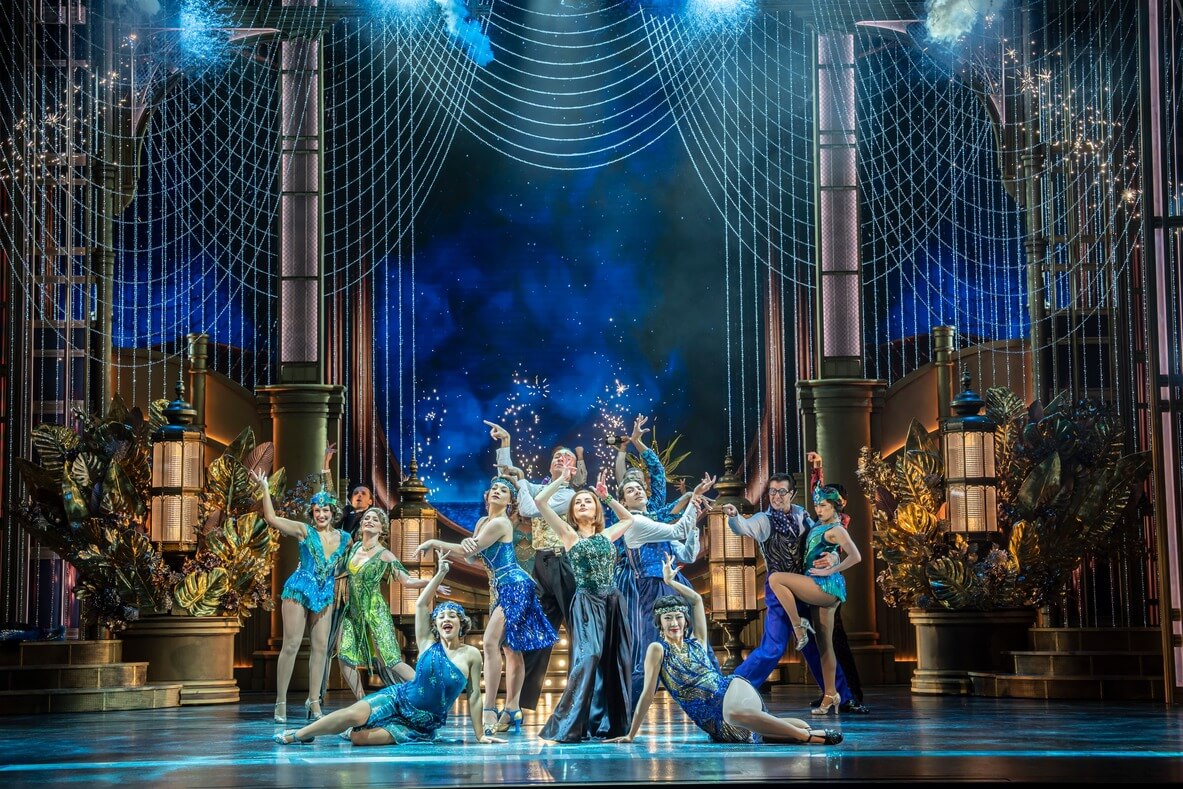Part confession, part meandering life story, and in many ways resembling a stand-up set, Byrne’s adaptation of his memoir begins with him aged four playing with his father, and ends with Byrne as a successful actor in recovery from alcoholism. That’s the linear narrative, though Walking With Ghosts is presented as non-chronological vignettes. Though the title is macabre, Walking With Ghosts is big on laughs and huge on warmth. Early on, Byrne tells a lovely, funny story of spending all his Holy Communion money on sweets, only to feel the ill-effects of his binge while on the street, and being found there later by his mother. He expects to receive a telling-off or an “I told you so,” but instead Mrs Byrne picks her son up and carries him inside. “And I knew,” Byrne tells us onstage, “That I was loved”.
Walking With Ghosts’ warmth and humour remain through the more disturbing chapters of Byrne’s childhood. A game with friends went wrong and caused a catastrophic accident. Byrne had two abusive teachers, one who verbally and physically assaulted him and his classmates at school near Dublin, and one who sexually abused him at an English boarding school. The latter story stops abruptly before Byrne narrates the abuse in detail, though the description of the teacher’s manipulation of Byrne is wince-inducing enough. Equally as painful and even more uncomfortable is the hesitancy and sympathy which Byrne shows when recounting how, as an adult, he attempted to confront his abuser.
Stories from Byrne’s adult life cover his beginnings as an actor and his journey to Hollywood. Byrne refrains from constant name-dropping, choosing instead to tell a single Big Celebrity Anecdote, about his friendship with Richard Burton. Through really this is a lead-in for Byrne to discuss his experiences with alcoholism. The origins of his illness are more interesting than the recovery, which strays into Public Service Announcement territory. Walking With Ghosts plus two-hour run-time is also a bit much, and the show could easily lose a few minutes from both halves.
Byrne's love of language is evident in Walking With Ghosts' script. Metaphors, such as, "his teeth looked like a row of fridges" abound. Byrne's chameleonic performance sees him portray his granny, a music-hall comedienne, his teachers, a local vagrant, and himself at various ages. Blue eyes lasering out of his skull, Byrne draws you into these characters, so that you not only believe that Byrne is them, but also that you’re seeing the setting and the other people around them. Byrne isn’t just talking to the audience, he’s making us feel as if we’re experiencing events with him. Byrne’s performance is closer to confessing than recontouring, which enhances Walking With Ghosts personal feel. The performance is especially impressive given that Byrne is the audience’s sole focus. The closest he has to a co-star is Sinéad McKenna’s gorgeous lighting design. The lights drift between colours and brightness, pulling us further into Byrne's world.
Humorous, haunting and hopeful, Walking With Ghosts is a gripping masterclass in the art of story.

 In Gabriel Byrne’s one-man show,
In Gabriel Byrne’s one-man show, 

